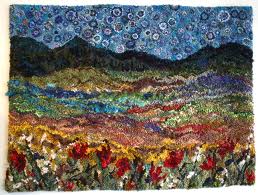There was never a time when AGE was not on the forefront of my consciousness.
Itty bitty little Tot
"How old are you young man?" came the generic introduction from
strangers since the first days I started stringing syllables together. And ever
since those yonder years I have strung together my identity based on that
number.
As a kid, what feats you could perform was directly proportional to your chronological age medal.
A 6 and 9 year old were never gonna be fairly matched.
I looked up to the older kids, as if they were superior in ways higher than their height. I guess the immediate threat of pummeling goes a long way to a pseudo-respect.
The Dawn of Social Dynamics and Hierarchies
As I reached the age where I started to like girls, I based my potential targets on their age. "How old are you?" was a precursor to sending the friend over to tell her I have a crush on her. You could never "date" anyone two years younger...especially if you were a girl
for crying out loud! My girl cousin always judged how well I was doing by how old the girl I was dating was.
Then came the surmounting of bases. The average age for the first kiss is 15. To me there was nothing sweet about being 16 and still square. I'd kissed girls at 8, but I didn't think that counted. Unfortunately your suaveness is inversely proportionate to your trying.
Young Adulthood
Since I was 19 I felt like time was running out. Nowadays that's laughable! But I was a deer caught in the headlights of my options. I have yet to solidify many of these options, and guess what? Strangely enough the oncoming vehicle hasn't squished me! Hmm, maybe it's not real? Life may
not be all about having it figured out according to their standards!
In America it's all about reaching 21 so you can party. 21 year olds in other countries are already phasing out of that novelty, having been able to
legally drink in clubs since 18, and
practically since 15. The party scene blurs the next few years. But it's a blissful blur.
The graph started out-running me with its statistics:
the average person finishes college at 23
starts a career at 24
gets married at 29 (27 if you're a girl)
buys a house at 34
...
dies at 79.
If my life is already mapped out for me, then what's the point of living it?
And if I've gotta check certain flagpoles like a ski race, then am I really free...to ski?
Middle Age
Ooo the ying yang black and white phase of middle age! On the one hand we've got things figured out to a large extent...on the other hand, we may realize that all our figuring has been on the wrong math equation! Barking up the wrong tree becomes unbearably noisy, and we're sometimes forced to rethink our identities. Children leaving home calls roles into question. Losing our sexual appeal is a deep loss if that's what we have built our worth on.
It's a time of re-evaluation. This is always a good thing. Seldom a comfortable one; always good.
Old Age
As the circle of life closes on itself it again bares too diametrically opposed states:
1) Despair at the loss of everything. Including dignity, status, and life itself.
When outward life slows down, we go inwards. If we hate what's in there, the journey's gonna suck.
OR 2) Hope and peace in the seeds of legacy and regeneration that you have sown.
A re-prioritized sense of the importance of spirituality emerges.
Which brings us back to the end of my last post. Yip, it's about religion.
Cos religion (or spirituality for all those hung up on terms) is a huge deal, no matter what phase of life we're in. It's like, figuring out the rules of a game before you get too involved in playing is a sure-fire way to increase your chances of winning!
Let's not spend our lives climbing the ladder of success only to discover it's leaning against a building that's been labeled for demolition.
Not to end on a morbid note or anything...here's a little happiness:
LIFE ROCKS; GOD IS EPIC; FALL'S COLORS APPROACH (and another summer awaits!)










